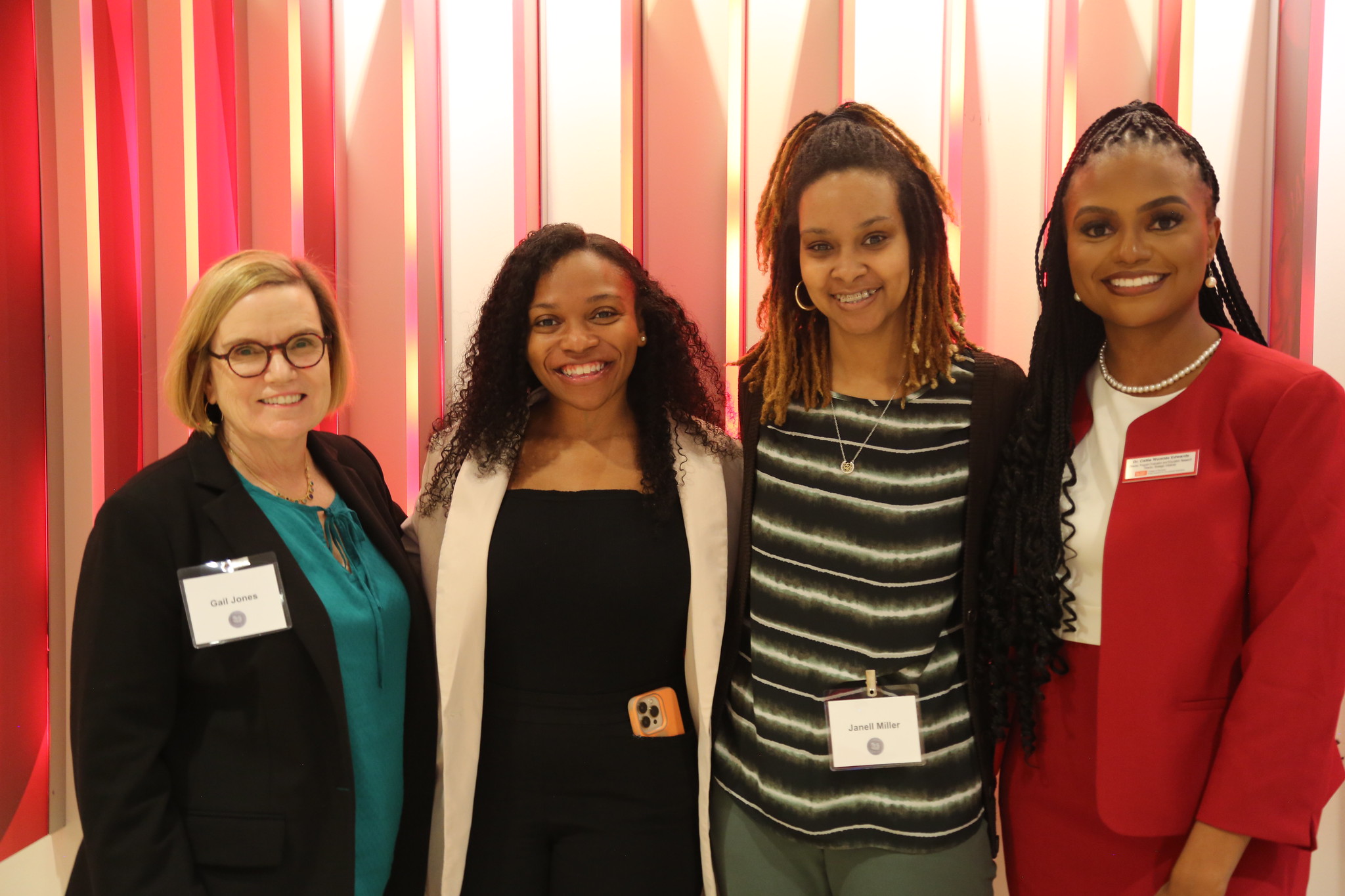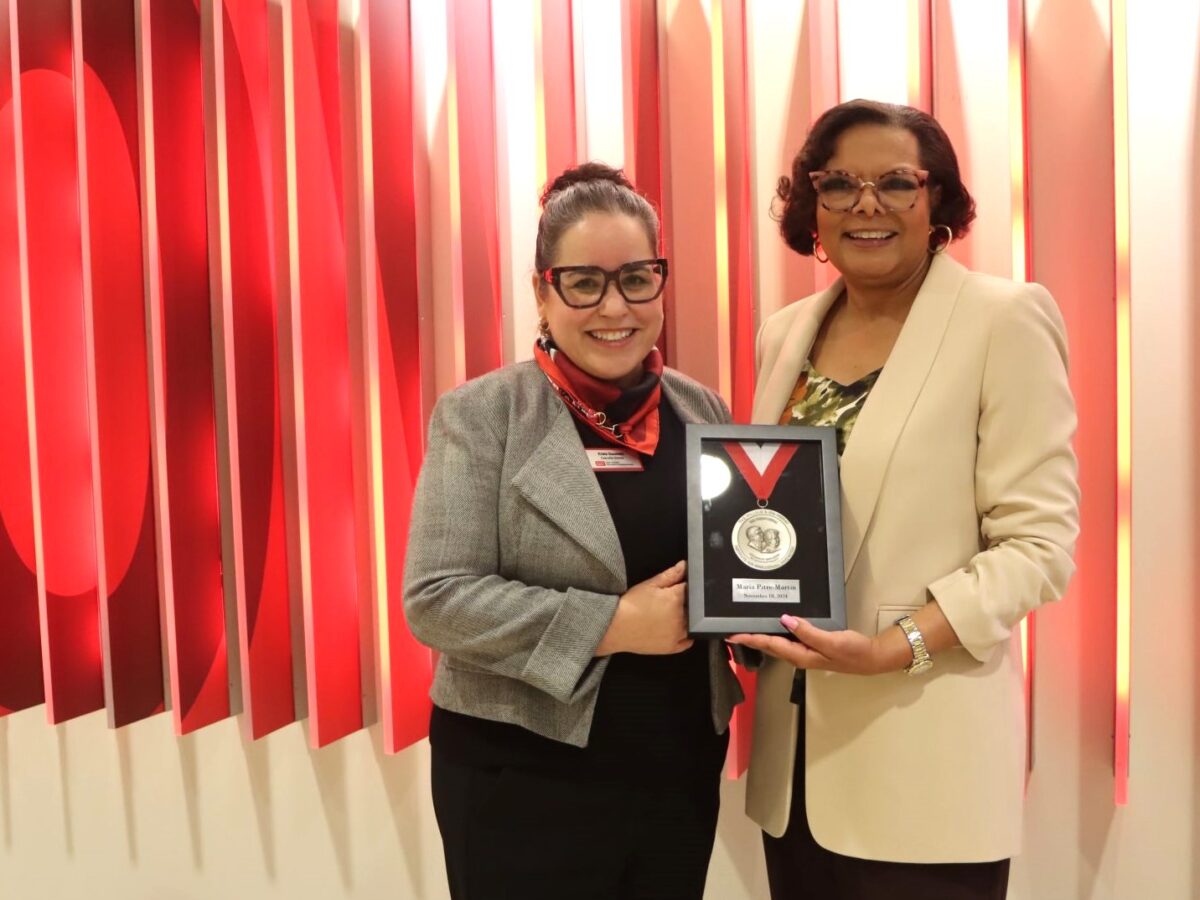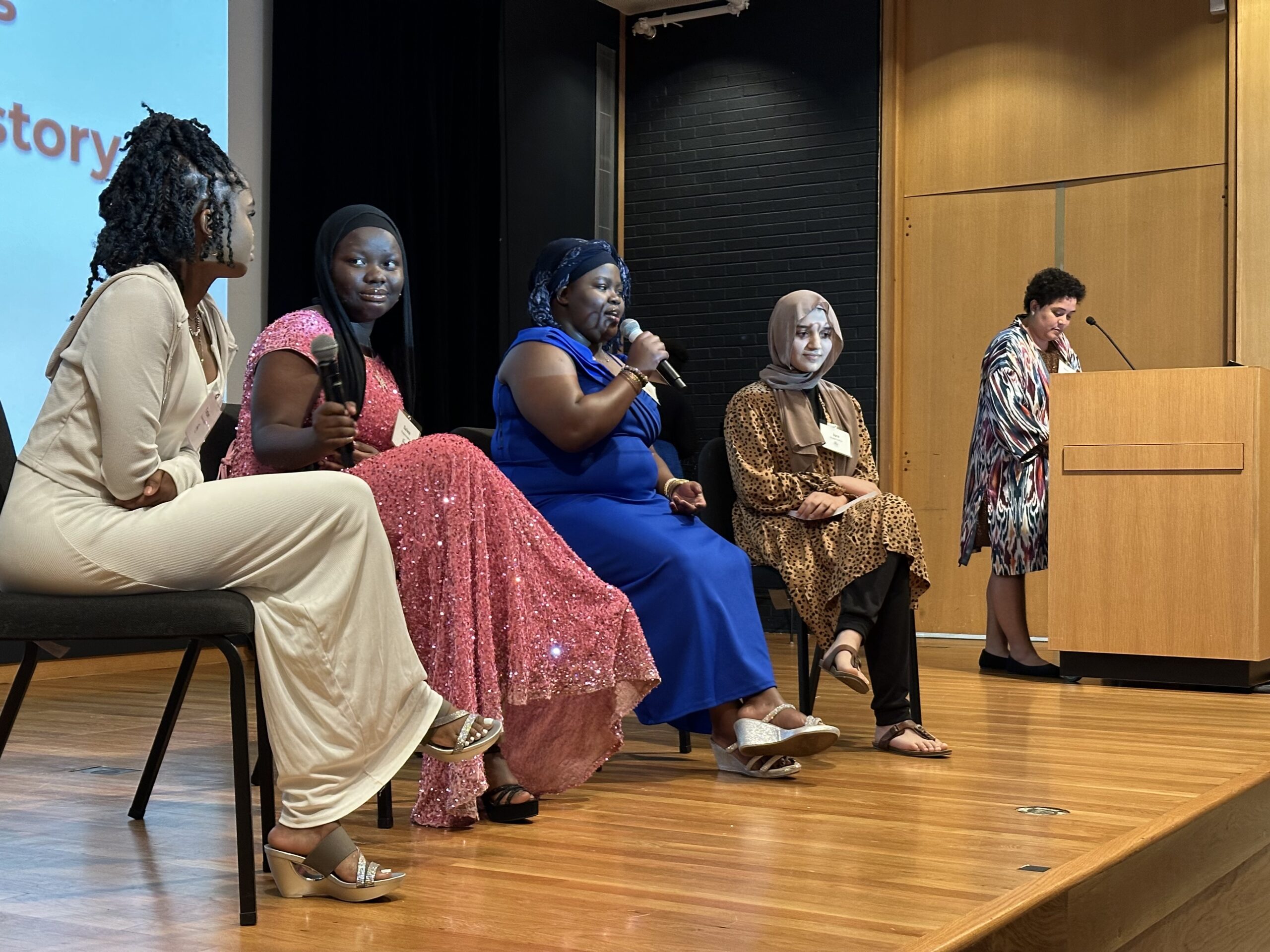Let’s Get Digital
Friday Institute’s longtime commitment to digital learning helps change North Carolina’s education landscape

On November 28, 1994, Elsie Brumback, then-director of instructional technology at the North Carolina Department of Public Instruction (NCDPI), sent a memo out to all members of the state cabinet titled, “Bringing DPI on to the Internet.”
In some ways, that was the seed that would one day culminate in the Friday Institute for Educational Innovation’s North Carolina Digital Learning Plan (NCDLP), an action plan and long-term strategy for the state that “sets directions and priorities and provides resources to enable the state’s educators and students to benefit fully from digital-age teaching and learning.”
But in between were years of behind-the-scenes research, planning, collaboration and evaluation that would lead to every single student and teacher in all 115 school districts in North Carolina having access to unlimited broadband in their classrooms—the first state in the nation to tout this accomplishment.
Connected from the start
By the late 90s and early 2000s, a small number of schools across the state began implementing technology in classes and needed technical support and professional development. It was important to educators to add this digital component to their teaching because they saw the value it would have for their students in the long run.
A group of researchers at the NC State College of Education, who would eventually become some of the first employees of the Friday Institute when it launched in 2005, led the charge.
“As we were developing the Friday Institute between 2002 and 2005, our focus was on technology for K-12 schools,” said Hiller Spires, Ph.D., executive director of the Friday Institute and associate dean of the NC State College of Education. “It was in the Friday Institute’s DNA from the beginning. We used the term ‘high-tech, high-touch’ to describe the kind of work we did with schools. Neglecting the human side when integrating technology is always shortsighted. We were clear about this from the start.”
The team at the Friday Institute worked collaboratively with each other and NCDPI to determine how to bring North Carolina’s K-12 classrooms into the digital age.
Researcher Jeni Corn, Ph.D., for instance, quickly recognized that a key part of understanding technology’s place in the classroom required evaluation. Without it, it would be hard to measure the digital learning plan’s effectiveness. She would later become the Friday Institute’s director of evaluation programs, playing a pivotal role in developing the digital learning plan.
Former IBMer-turned-Friday-Institute Director of Technology Planning and Policy Phil Emer had grant funding to lead the state’s School Connectivity Initiative in order to provide every student in North Carolina with access to “consistent, reliable, sustainable, high-performance” broadband.
While the Friday Institute was exploring all sides of digital learning, the education landscape was changing as well.
NC State alumnus and SAS founder and CEO Jim Goodnight, along with his wife, Ann, started Cary Academy as a tech-centered high school where every student had his or her own computer – one of the first in the country. This idea would soon become the Friday Institute’s NC 1:1 Learning Technology Initiative, funded by the NCDPI, SAS and the Golden Leaf Foundation.
“At the Friday Institute, we understood that the state couldn’t just drop computers off into classrooms,” said Glenn Kleiman, Ph.D., who served as the Friday Institute’s executive director from 2007 to 2018. “They needed technical assistance around planning, professional development for teachers and leaders, and evaluation frameworks. There needed to be shape around how technology should be used in a classroom.”
That set the backdrop for the Friday Institute’s work in launching the North Carolina Digital Learning Plan. In 2013, the North Carolina General Assembly passed House Bill 44, later ratified as Session Law 2013-12. In this law, the General Assembly declared their intent to ” to transition from funding for textbooks, both traditional and digital, to funding for digital materials, including…instructional resources, to provide educational resources that remain current, aligned with curriculum and effective for all learners by 2017.” In response to this goal, the State Board of Education issued the Friday Institute a $2 million contract to build the North Carolina Digital Learning Plan .
To Kleiman, their decision was no surprise. Over the years, the Friday Institute had intentionally and strategically hired national experts in the areas of technology training, infrastructure and evaluation. Spires agrees.
“No other group in the country had the ability to tackle all sides of this issue,” Spires said, “as well as the experience of working with the state, funding organizations and educators alike.”
Building the foundation

In 2015, the Friday Institute and NCDPI published the NCDLP, representing a survey of the current status of digital-age learning initiatives across North Carolina, an analysis of research and best practices, and recommendations for a path forward. This plan built upon the Friday Institute’s early work in digital learning, research and connectivity. In response to the NCDLP, the General Assembly allocated funds to NCDPI to create the North Carolina Digital Learning Initiative (NCDLI) in partnership with the Friday Institute in order to enact the recommendations in the plan.
A critical piece of the puzzle was to continue to push school connectivity – a barrier to digital learning in rural and underserved districts.
“We wanted to ensure every school across the state had the same level of internet access, regardless of their location and funding,” said Ray Zeisz, director of the Friday Institute’s Technology Infrastructure Lab. “What we were able to do is maximize the efficiency for claiming federal funds and resources. If you leave it up to the school districts themselves, smaller districts would struggle simply due to economies of scale. Instead, we worked hard to pool resources and ensure the money was spent as efficiently and as effectively as possible so that the program was as fair and equitable as possible for all schools across the state.”
In May 2018, the Friday Institute, along with NCDPI, celebrated a major milestone. About 1.5 million public school students in North Carolina’s more than 2,500 schools were officially connected to Wi-Fi, making North Carolina the first state in the country to offer unlimited broadband to all students.
And while it was certainly a cause for celebration, Zeisz is already looking ahead.
“Right now, we’re focused on cybersecurity and building infrastructure on the state network to protect against ransomware, while also trying to work through the ‘homework gap,’” Zeisz said. “While all schools now have fiber internet, many homes may not. We’re engaging with various vendors and looking into policies to determine how to cost-effectively provide home internet access in a way that allows digital learning to follow those students home.”
From the top down

Beyond the infrastructure, the Friday Institute was quick to understand that technology is only as valuable as the educators who implement it.
For this reason, Mary Ann Wolf, Ph.D., senior director of the professional learning and leading collaborative at the Friday Institute, has spent 15 years connecting policy and practice for innovative education reform, digital learning and instructional practices. As part of the NCDLI, Wolf, along with NCDPI, worked to create networks across the state to build human capacity and launch digital learning initiatives.
“We evaluate all of our work under the lens of how it personalizes learning for every student, increases access to opportunity and innovation in education,” Wolf said.
She works with cohorts of superintendents, principals, instructional technology specialists and more to help them understand and plan for key elements of personalized and digital learning while allowing them to network and support one another and collaborate on addressing problems on a smaller scale.
“For instance, with the North Carolina Digital Leaders Coaching Network (NCDLCN), our participants work to create an effective coaching action plan that practically addresses how they will work with teachers in their schools to support their transition to digital learning,” Wolf said. “We have an alumni network from the program, 800 strong, and so many opt to come back and serve as mentors. It shows not only the value they see in the learning but also with one another.”
The Friday Institute’s Professional Learning and Leading Collaborative continues to provide professional learning and capacity-building efforts, along with case studies to gauge the program’s successes, challenges, opportunities and impact transitioning to personalized, digital-age learning.
“The work is challenging but fulfilling,” said Wolf. “What we’re doing is really supporting organizational change. We’re building capacity for district leaders to support their principals and teachers, which then impacts student learning and outcomes.”
Wolf’s team has worked with 111 of the state’s 115 school districts over the last three years alone, and a large number of districts are participating at every level — from teachers to superintendents. Since 2016, the team estimates they have worked with nearly 5,000 educators a year.
“The work Mary Ann’s team is doing is not only impacting North Carolina – it’s serving as an example for other states to follow,” Spires said. “Right now, the Friday Institute is working with 14 other states, from Utah to Massachusetts, to help develop their own digital learning networks.”
Digital learning is a critical piece in education that helps students be prepared for college, career and citizenship. Educators work on a variety of instructional strategies to provide opportunities for students, and Wolf’s team plays a huge role in this.
“School and district administrators and educators strive to understand and meet the needs of all students so that they can reach their potential,” Wolf said. “The work in our state around digital learning has supported districts in addressing equity, personalizing learning and ensuring that our graduates are prepared for their and our state’s future.”
A way forward

Woven into all aspects of the digital learning plan were rounds and rounds of data collection and evaluation to help design the program and monitor its ongoing effectiveness.
“It’s a lot of behind-the-scenes work to understand district needs and how NCDPI can help meet those needs when it comes to personalized learning going forward,” said Shaun Kellogg, Ph.D., senior research scholar at the Friday Institute.
Evaluations play a critical role in helping legislators understand the real-world impact of programs like the NCDLI, which can lead to additional funding or even legislative changes.
To help legislators and stakeholders understand, Kellogg’s team has provided a summary of existing data on the collective impacts of NCDLI efforts on teaching and learning including a research brief and infographic (above). Additionally, they have updated the School Connectivity Initiative and the North Carolina Statewide Digital Learning Overview dashboards and conducted focus groups with district and school stakeholders across the state in order to summarize key findings and recommendations about local data needs. Finally, the team has piloted and validated the North Carolina Digital-Age Teaching and Learning Survey and developed wrap-around materials to support administration and analysis.
From the Friday Institute’s early work in school connectivity to the ongoing professional development and evaluation, the team regularly hears feedback from educators on how the NCDLI continues to impact students across the state.
“Integrating technology in a meaningful way has led to an increase in student engagement, which has allowed [students] to redefine the concepts taught,” said Thomas Loftin, STEM lab facilitator at Greene County Middle School in Snow Hill, North Carolina. “We have seen large changes in the way that students shift from being consumers of content into the creators of content.”
Moving forward, the Friday Institute will continue to collect participation and stakeholder feedback and work to quantify the impact of the state’s investments, including NCDLI efforts on school and district capacity to implement personalized digital-age learning and how it impacts student engagement and achievement.
“Over the past five years, NCDPI’s partnership with the Friday Institute has contributed to the transformation of digital-age teaching and learning across North Carolina,” said Vanessa Wren, NCDPI’s director of digital teaching and learning. “Their team has been critical to North Carolina’s success by providing leadership around data and research, professional learning, and the state and national landscape. As a district leader, I experienced firsthand how their collaboration with NCDPI supported our work, from the superintendent’s office to the classroom. I appreciate their partnership in advancing education through innovation in digital-age teaching, learning and leadership.”
The Friday Institute’s partnership with NCDPI through the years has been meaningful to those at the organization too.
“Our teams at the Friday Institute have dedicated many years focused on digital learning, and we’re committed to it because it has an impact on teachers, students and communities across North Carolina, while also influencing digital learning on a national level,” Spires said. “By partnering with NCDPI, legislators, funding organizations and more, we’ve been able to support thousands of dedicated, creative educators across the state to provide a personalized digital learning environment to their students that equip them to thrive in the digital world.”
- Categories:


